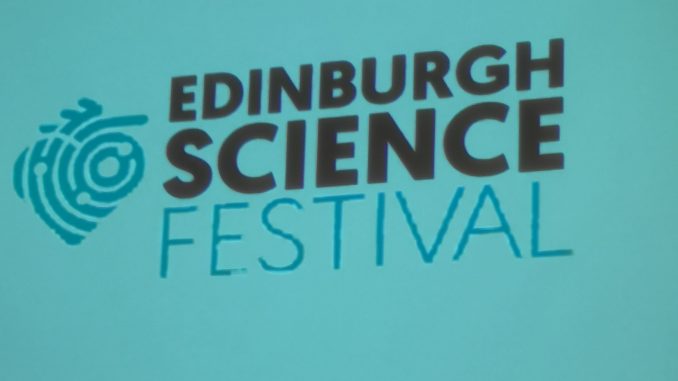
The Edinburgh Science Festival is filling the city with events to excite, inspire amaze and educate all ages.
This year’s theme is Frontiers, celebrating the 50th anniversary of the Apollo Moon landings. The moon landings are a fabulous vehicle (pun intended) to discuss science and technology. For many they are an inspirational reminder of what can be achieved when human endeavour and political will are aligned. For a few they are the source of controversy and conspiracy theory. In this age of “fake news” there has never been a more important time for society to be familiar with the scientific method, to be critical thinkers and to value fact over fuss. Edinburgh Science makes the world of science accessible to all ages, whether you’re a Nobel Laureate or just sci-curious.
In a wide- ranging programme, there are new venues and new topics to explore. It doesn’t matter whether you are interested in rocket science or cheese, robots or renewables, DNA or dinosaurs you will find an event that gets you thinking/laughing/eating/making slime.
Highlights for me include Gene Machine. This is a fascinating explanation by President of the Royal Society, Sir Venki Ramakrishnan, of the professional and personal journey that led to him receiving the Nobel Prize for Chemistry. His work on the Ribosome, the amazingly complex and ancient structure that is fundamental to life as we know it is explained in accurate yet simple terms. It’s a sign of a deep and profound understanding of a complex subject when it can be explained in clear, jargon free language and yet maintain the detail and depth that is needed. Ramakrishnan is entertainingly honest and refreshingly self- deprecating. As well as the science, he shares some life lessons learned on the road to Sweden. He admits in science, as in life, success or failure can depend on luck, as well as patience, skill and money.
Singer of silly science songs Jonny Berlinner brings his guitar and lots of jolly singalongs to the Festival. This physics teacher turned science communicator believes that singing is one way to bridge the imagined gap between science and the arts. He also includes a surprising amount of accurate detail about the science of sexual reproduction and the benefits of silly songs as an educational resource. He explains “Songs employ other forms of cultural capital and re-engage the disengaged.” He nails the Festivals’ ethos of using arts and entertainment to make science more accessible to all.
Veteran geneticist Steve Jones reminds us that science never stops, and received wisdom is never the end of the story. In his event “Here comes the Sun” he challenges the modern view that sunlight is the cancer causing enemy and that for good health and longevity we in northern climes should be seeking out sunlight. As skin cancer rates are still rising globally, this generates a robust amount of debate and questioning about the Vitamin D producing benefits versus the potentially catastrophic effects on skin DNA. Jones has been around long enough to take this in his stride, and it makes for a really engaged session where questioners remain to debate and discuss long after the official finishing time.
Robin Ince is similarly no stranger to Edinburgh Science Festival, and his latest touring show Chaos of Delight is inspired by the famous quote by Charles Darwin. It does exactly what it says on the tin, being both delightful and Chaotic.
He shares the moment when he discovered his comedy hero, Robin Williams died, and how this led him to explore the perceived notion of the sad clown, firstly in a radio documentary and now a humane and fascinating book. He uses comedy and comedians to explore the human condition, albeit with some frenetic digressions along the way. With his usual insightful humour, he celebrates the frailties and foibles of the human mind and the complexities of the human brain.
He finishes with a moving poem about fathers and sons, the fleeting nature of childhood, and the importance of appreciating the here and now.
There is still plenty of time to enjoy all the Edinburgh Science Festival has to offer as it continues until 21st April across the city.
